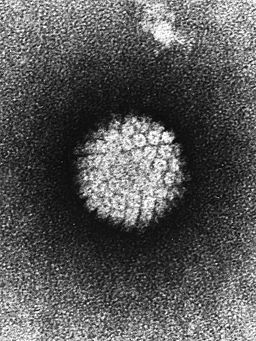Many Common Cancers Are Sparked by Viruses

Many people believe that cancers are caused by a person's diet, bad habits, or chemicals. However, researchers have found that a significant portion of cancers are triggered by viruses. The good news is that the viruses can be stopped if scientists get to them in time and break the link. The bad news is that we are not yet completely there.
Over 50 years ago, an Irish doctor named Denis Burkitt opened up a clinic in Uganda. Nearly immediately, he realized that a large number of children who were visiting his facility had facial swellings that could become large enough to choke and kill. He later dubbed the cancer Burkitt's lymphoma.
Burkitt's lymphoma is the most common childhood cancer in Africa and it is thought to be triggered by an infection. The disease is associated with Epstein-Barr virus. 95 percent of adults in the United States have the virus, according to Centers for Disease Control and Prevention. Malaria is also considered to play a role.
This is not the only virus-cancer link. H. pylori is a strain of bacteria that causes ulcers and can sometimes cause stomach cancer. The parasite that causes schistosomiasis can also trigger stomach cancer. A virus that attacks people with weak immune systems has also been known to cause Kaposi's sarcoma, a cancerous tumor that targets the connective tissue.
In North America, only 1 in 25 cancers are caused by infections. In developing countries, that rate is up to 1 in 3, mostly because poor sanitation puts people at greater risk for contact with germs.
The infectious agents invade cells and disrupt their normal behavior. Epstein-Barr, for example, invades B cells and forces them to grow. The more they grow, the more likely it is that the cell makes a mistake.
Already, doctors are performing work to stop the link between viruses and cancer. Look at the human papilloma virus vaccine, for example. The controversial HPV vaccine has been known to target a virus linked with cervical cancer. The vaccine is an effort by public health advocates to lower the rates of cervical cancer infection.
Published by Medicaldaily.com



























